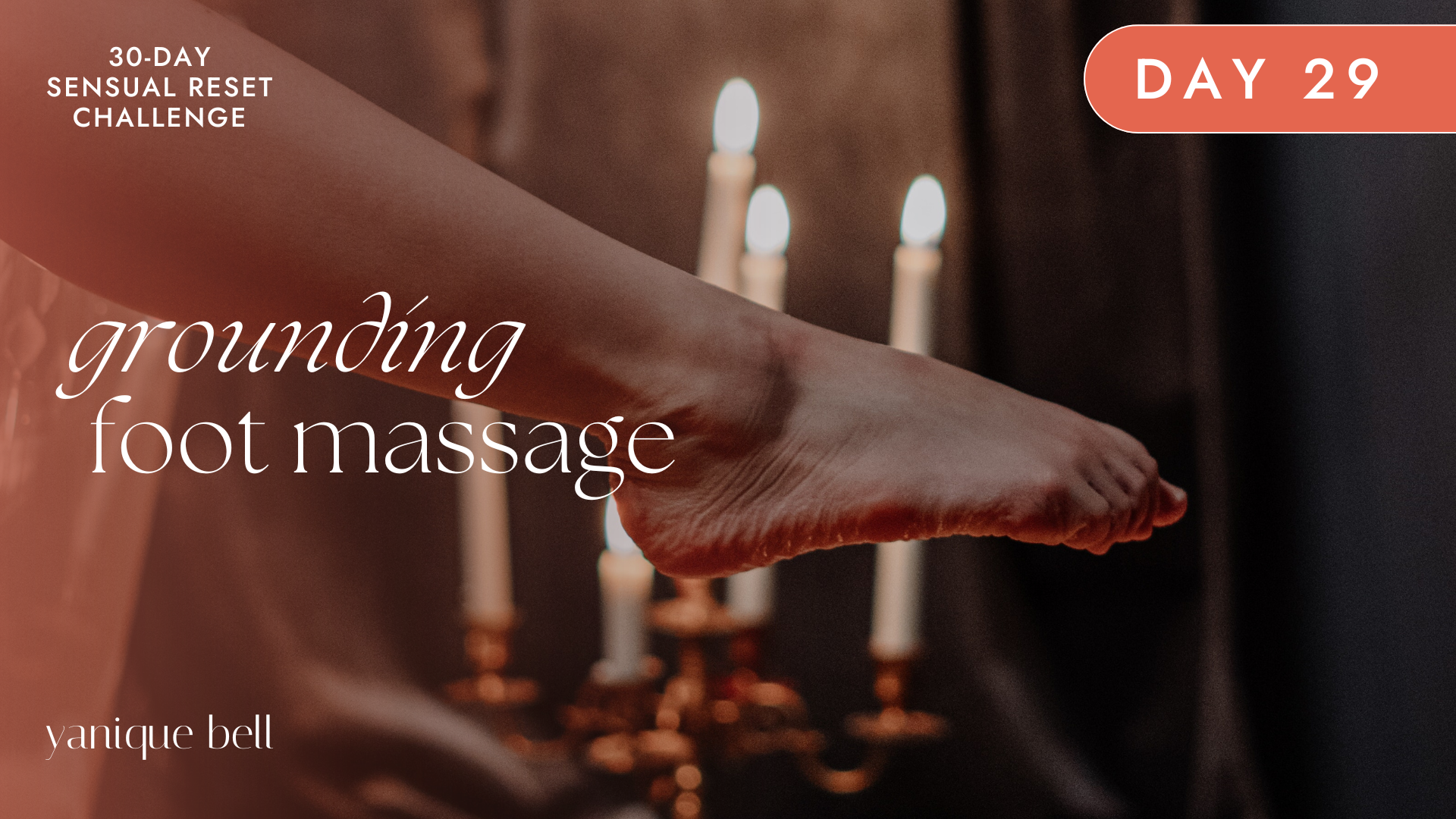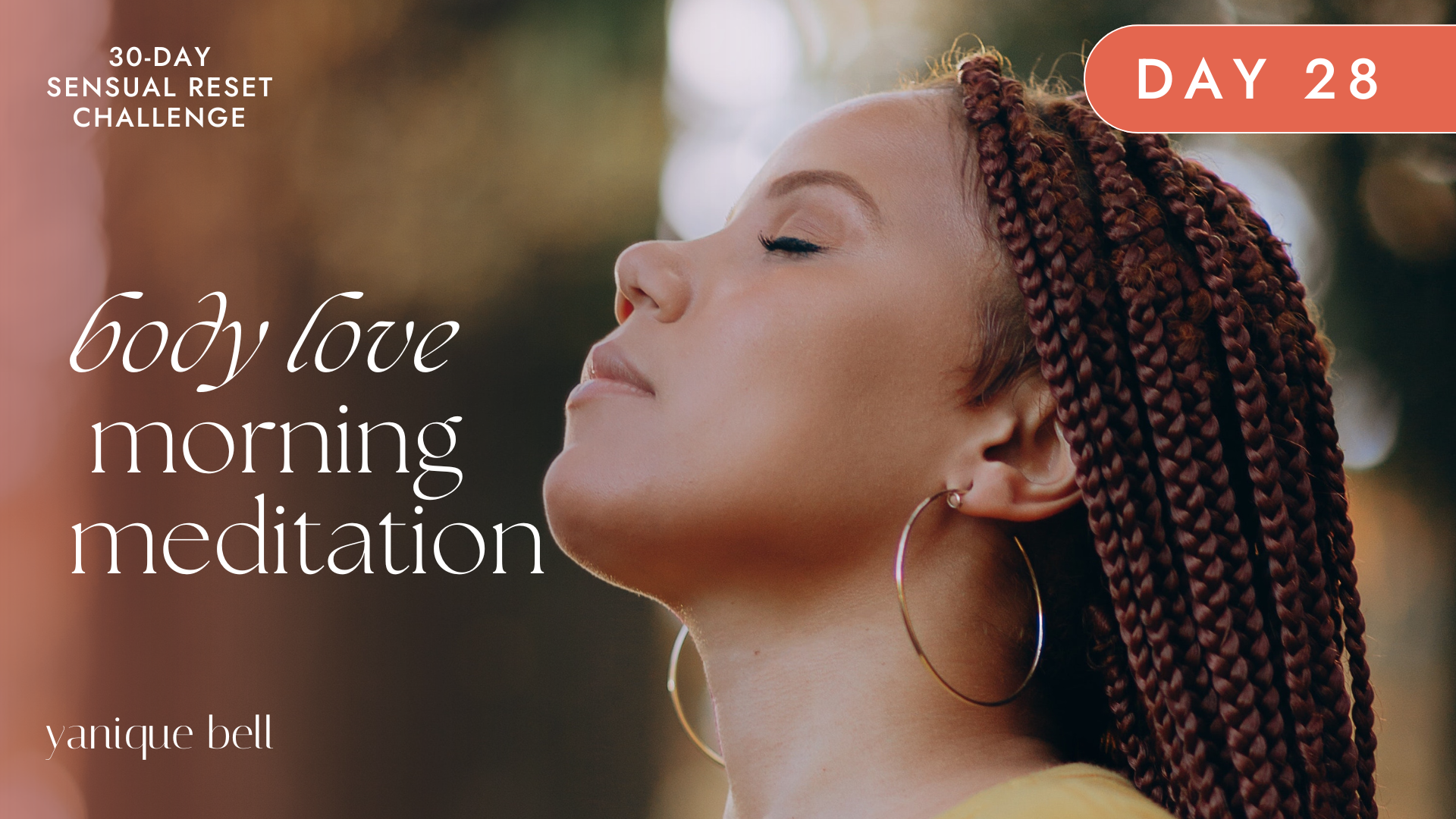
The vagina is a portal rich with sensation and aliveness — if you know how to flip the “on” switch. In this post, I’ll be sharing 4 ways to increase your vaginal pleasure sensitivity, so you can find that “on” switch as soon as tonight. And no, it’s not the switch you’re thinking of. But first let’s start with the basics:
What is Vaginal Pleasure Sensitivity?
Vaginal pleasure sensitivity refers to the vagina’s ability to detect, sense, and respond to pleasurable stimuli, such as touch and pressure. Due to the volume of nerve endings in the clitoral glans, the vagina is often neglected as a source of pleasure and orgasm. In fact, the belief that the vagina is generally numb or only minimally sensitive, insufficient of producing an orgasm on its own, still persists today even within the medical field. But this simply is not the case.
The vagina is rich with nerve endings and pleasure hot spots that when turned on can produce deep, emotional, and liberated orgasms.
Disconnection is at the Root of Numbness
While vaginal numbness is common, it doesn’t have to be your normal. You can flip the switch and get your pussy purring in every department. Unless you are experiencing neural damage (which you should consult a physician about ASAP), vaginal numbness is a sign of disconnection.
Think about it this way: Have you noticed that when you eat while scrolling through social media or watching TV that you don’t really enjoy every bite of food? In fact, the meal seems to be over a lot more quickly, usually just when it was starting to get good. Since you were distracted, you tasted the first few bites, but don’t quite remember the rest. This is how many of us unconsciously have sex. We approach sex distracted and generally disconnected from everything going on “down there.” Our pussy is like an abstract, foreign land with its own language and governing principles that we don’t understand. When we are experiencing numbness (or actively numbing out), we are disconnecting from the experience of feeling.
And it goes without saying, if you want insane orgasms… you have to feel.
You also have to feel to heal. Numbness may also be your nervous system’s attempt to protect you from a painful emotion that you don’t feel prepared to feel and process. If you have experienced trauma and suspect that your numbing is connected to deep emotional pain, I highly recommend working with a trauma-informed coach (like myself) or a trauma expert, so that you can safely bridge the gap in a way that is gentle and nourishing for your nervous system. Opening up to the feelings you have buried inside can feel overwhelming, but keep this in mind: According to the Harvard-trained brain scientist Dr. Jill Bolte Taylor, the lifespan of an emotion is roughly 90 seconds. That means that most emotions can be effectively experienced and processed in just 90 seconds.
Now, complex trauma is often accompanied by multiple layers of emotions. But, I can confirm from my experience with clients that once we have done the gentle and foundational work of creating a safe space for these emotions to be fully experienced and expressed, it only takes a minute or two, sometimes five, of feeling the most intense aspect of the emotion for it to be processed and transformed. Trails of the emotion may linger and require more sessions to fully process, but the bulk of the feeling is often done in a short bouts of time. In the span of our lives, allowing ourselves 90 seconds of emotional discomfort is much preferable to the alternative: spending years and decades debilitated by fear and unable to access the full power of our feeling capacity (which includes by the way, really really good orgasms).
Vaginal Sensitivity Statistics Gone Wrong
From my perspective, the disconnection is not just occurring on the individual level but the academic and institutional levels as well.
I find that the well-intended educational messages about the clitoris is skewed by a history of women being systematically disconnected from their bodies and intentionally misled about their sexual organs.
You may have heard this statistic before: Only 18.4% of women orgasm from vaginal sex alone [Source].
Why is this statistic problematic? Well, for starters it is derived from an anonymous survey and only reflects what women at the time of the survey (2015) are experiencing and not what CAN happen. And belief affects our biology. When we are told again and again that the vagina is not sensitive (even though, it can be!) and that not many other people are having orgasms from vaginal stimulation alone, then we start to believe that this is simply how our body is built to function. These statistics are often employed almost as a diagnostic tool, confirming or dismissing the potential of the female body. I believe they should be used as an awareness tool, shedding light on where we are as a society that is, quite frankly, still healing from deeply ingrained misogyny, widespread disempowerment, and inequity.
Sex statistics do not reflect what is actually possible in the body. They are not an accurate depiction of what is possible for you. Do not read them as such. They are simply a reflection of where we are as a society at the time of the survey and, more than anything, they highlight disparities in our sexual education and consciousness around sex.
So, when I see a statistic like 81.6% of women cannot orgasm from vaginal sex alone – I hear “81.6% of women have not learned how to orgasm from vaginal sex yet.”
Unfortunately, most women, hear that statistic and think “I can’t beat those odds. I’m probably not going to be among that lucky 18%.” Unlocking your vaginal orgasms is NOT about beating the odds. These statistics are skewed by the fact that most women receive very poor education about their vaginas and pussy on a whole. We aren’t taught the necessary tools and skills to become wildly orgasmic.
So, again this is not about beating the odds, but about building up your vaginal pleasure sensitivity so you can join the many many women who are delightfully orgasmic inside and out.
Flipping the Switch: Turning Your Vagina On
Now, maybe you’re still on the fence about this vaginal orgasms stuff. I get it. If you’re currently numb or experiencing low-sensitivity, then having an orgasm from vaginal stimulation alone is going to feel like too big of a leap, even just mentally.
Still, even a modest goal of feeling just a bit more vaginal pleasure during sex will reap massive benefits. It’ll help you feel more sexually alive and vibrant. Many women feel more “mature,” “feminine,” or “womanly” when their vagina is on and activated. You’ll also feel more emotionally connected with your partner and yourself.
Turning on your vagina requires you to turn on your awareness of your vagina and begin to rewire the vaginal nerves for pleasure and orgasm. The following recommendations help you to do exactly that.
4 Ways to Increase Your Vaginal Pleasure Sensitivity

1. Breathe
Nothing in the body occurs in isolation. Orgasm is no different. There are many processes that support your orgasmic wellness. One of those is the relationship between your breath and pelvic floor. Many of us have a poor habit of holding our breaths throughout the day or breathing shallowly. When we hold our breath or suck in our tummies, we actually create a detrimental environment for the pelvic floor. It’s kind of like creating a pressure cooker that results in unnecessary tension throughout our pelvis and abdomen. This limits the natural undulation of the pelvic floor. The pelvic floor is meant to rise and fall with each exhale and inhale, synced with the diaphragm.
Though I know many women like to hold their breath and squeeze as they’re getting close to orgasm (totally normal and yummy), we don’t want to do this when we’re at the beginning stages of arousal. When you’re just getting turned on (or trying to), please please BREATHE. Specifically, try breathing in and out of the mouth. Mouth breathing during sex or self-pleasure helps to relax and open the pelvic floor. Tightness and tension as you’re trying to open up sexually does not go together. So, relax that jaw and breathe, baby, breathe. This will also increase pleasure in the process.
Join the Pleasure Newsletter:
2. Incorporate a vaginal massage
Chronic tension or tightness in the pelvic floor and vaginal muscles can cause feelings of numbness and even pain. I recommend adding a weekly massage to soothe away any built up tension and restore pleasure to the walls of your inner sanctum. Even if you don’t suspect that you have much tightness, incorporating a self-massage will also help to build your pussy connection and somatic awareness — and remember, turning on your vagina requires turning on your awareness of your vagina so you can start to feel on a deeper level!
In the Vaginal Rejuvenation program, you’ll find a collection of vaginal soothing practices in Module 1, including a guided pussy massage practice. We start with this practice because your body may be holding unprocessed trauma and stuck emotion in the form of tension in the hips, abdomen, and pelvis. Removing this excess tension is an essential first step in cultivating a healthy, happy, and orgasmic vagina. So, don’t sleep on this practice! Add it to your Sunday evening self-care. I guide you step-by-step through the massage, so start your Vaginal Rejuvenation journey today to get started.
3. Prime your nervous system for pleasure
The vagina takes some time to get turned on and ready for play. Plus, for those of us who are not easily aroused, stress can diminish our sexual desire and our ability to perceive pleasurable stimuli. In other words, stress can be a major turn off for most of us. Now, you may be a member of the fraction of our population who interestingly find themselves more sexually driven when stressed. However, even these individuals notice that the sex they have under stress doesn’t quite hit the same spots. According to Emily Nagoski in Come as You Are, even amongst those who find that stress increases sexual interest (commonly known as “sex drive,” though sex is not a “drive”), stress still blocks sexual pleasure and enjoyment. So, that means for all of us, stressed sex isn’t the best sex.
In order to expand your vaginal pleasure sensitivity, you want to practice being receptive to pleasure and aware of sensations in the body, which innately means maintaining a regulated and calm nervous system (as best you can). Even putting aside the effects of stress and dysregulatioin, the vagina simply takes more time to turn on than we usually allow it, because we’re used to conforming to the sexual pace that is set by a society and scientific perspective on sex that was first formulated by and for men. Male arousal speed is not female arousal speed. Reclaiming your pussy means honoring her pace. Give yourself the space you need to not only de-stress, but turn-on. To transition from the stress of your day and get into the mood, try adding one of these to your date night, before you play:
- a calming bath
- body or foot massage
- heart meditation
- or couple’s breathwork
You’ll find a selection of guided practices to prime your nervous system in the Module 3 of the Vaginal Rejuvenation program, including a short and sweet pussy breathing practice that you can easily add to every date night.
4. Start slow
Too much too soon can lead to tensing and discomfort! Remember, the vagina takes time to turn on. Just because your vulva or clit feels alive and ready for touch, doesn’t mean your vagina is. And when penetration occurs too quickly, we might get a kickback response in the form of tensing and vaginal pain. This will make experiencing vaginal pleasure even harder. So, take your time. Listen to your body. The slower you go, the more sensations you’ll be able to tune into and feel, which leads to an increase in your vaginal pleasure sensitivity.
Retraining ourselves to start slow can feel like a real bummer at first. We’re used to fast forwarding and rushing to the good stuff. But I promise, if you give your vagina those extra minutes to turn on, the juicier the experience will be. Plus, some pleasure hot spots in the vagina (like the g-spot) are not accessible and orgasmic until we reach a highly aroused state. So, take your time. Start your playtime with slow, sensual touch and words of affection. Your pleasure is worth it.
Practice, practice, practice – Putting It All Together
Treat your pleasure practice like a yoga practice. The more you practice, the more your vaginal pleasure sensitivity will grow and expand. Remember, your vagina is rich with nerve endings and pleasure hot spots that, when turned on, can produce deep, emotional, and liberated orgasms. Flip the “on” switch: Start your Vaginal Rejuvenation journey now >>>
Keep Expanding Your Pleasure Capacity:
Loved these tips to increase your vaginal pleasure sensitivity? Then, you’ll love Vaginal Rejuvenation – get started with a free vaginal rejuvenation class >>>



Comment on This Post